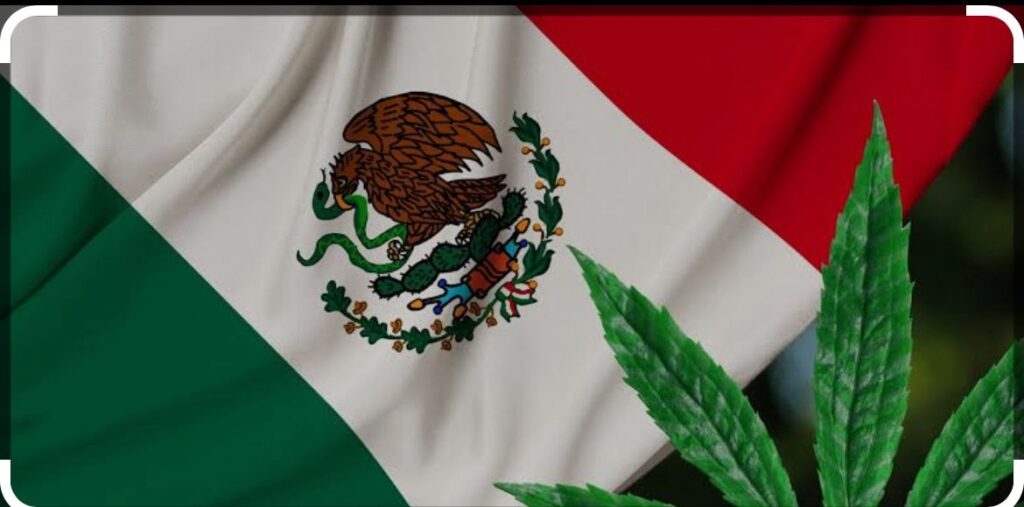
Would the legalization of marijuana benefit the Mexican justice system?
Mexico is currently facing an emergency in terms of illegal drug abuse. The global war on drugs has led to a systematic and low-intensity conflict between the United States and Mexico. Furthermore, statistics show that over 34,000 people were murdered in Mexico in 2020—meaning one person was killed every fifteen minutes—primarily due to the ferocity of drug cartels and illicit trafficking. Additionally, the annual sale of illegal drugs in Mexico has exceeded $50 billion.
Consequently, the country is moving toward the legalization of marijuana and other cannabis-based drugs in an effort to reduce the number of criminal cases resulting from the illegal possession and use of marijuana in Mexico.
The lower house of the Mexican Congress has approved a bill to decriminalize the recreational use of cannabis. The bill is now in the Senate, with a strong possibility of being approved, as senators have voted in favor of marijuana legalization. If the bill is passed, Mexico would become the third country after Canada and Uruguay to fully legalize cannabis for industrial, medical, and recreational purposes.
This impending crisis has directly led to the strengthening of Mexico’s drug control laws, which encompass everything from drug possession to organized crimes related to drug cartels, human trafficking, murder, and femicide.
The main response of the administration to address the war on drugs and related issues has focused on two key elements:
- Controlling the growing use and possession of drugs like marijuana.
- Fighting against those involved in the illicit trade, supply, and distribution of marijuana within or outside Mexico.
In an effort to make Mexico a better place to live, the Mexican government has clearly stipulated rules and regulations for marijuana use in the country, which is home to some of the largest drug trafficking organizations in the world.
In this blog, we will discuss several advantages of marijuana legalization for Mexico’s criminal justice system.
RESTORATION OF JUSTICE
Discussing marijuana legalization in financial terms is a compelling argument, but the human cost is the main consequence of the War on Drugs. When individuals are arrested and imprisoned for drug offenses that are legal in many states, they often lose job opportunities, mortgage loans, homes, and access to social or community events.
This is particularly true in Mexicali, where the crime rate is very high, and people speculate about suspicious individuals throughout the city. Therefore, legalizing marijuana could help resolve conflicts and improve public perception regarding the use of marijuana for recreational and medicinal purposes.
Moreover, individuals with previous arrests or convictions related to the possession or sale of legal amounts of marijuana—which will soon be legal—will continue to carry these convictions along with potentially other criminal charges. This would further help legal bodies and the judicial system assess the convict’s history if they are arrested again.
Having a record of arrests for drug abuse or illegal possession would also assist local and federal crime agencies in increasing bail limits or sentencing for criminals.
CURBING THE WAR ON DRUGS
The war on drugs is primarily a war against marijuana. Criminologists, criminal justice attorneys, and drug policy professionals argue that the War on Drugs has been nothing but a nuisance to society. Additionally, the illegal possession and trade of marijuana amounts to about $47 billion a year.
Therefore, decriminalizing marijuana in Mexico could further mitigate the rise of illicit drug cartels, thereby reducing the overall impact on the country’s criminal justice system.
REDUCING THE NUMBER OF ARRESTS
Mexico is home to some of the most dangerous and entrenched drug cartels in the world. Unfortunately, many innocent citizens who wish to purchase and use marijuana for medical purposes are often arrested. Since the early 1970s, the number of people arrested for marijuana use has multiplied sevenfold at the turn of the millennium.
With so many people incarcerated for marijuana use, the judicial system and law enforcement agencies are wasting time and effort trying to uphold drug control policies. From issuing citations to wasting taxpayer dollars and tracking drug control cases, the steps involved in anti-drug arrests are time-consuming.
Moreover, one of the most damaging effects of an arrest is the reputational harm resulting from facing criminal charges. The overall process of navigating the criminal justice system is also quite stressful, especially for non-violent recreational marijuana users who have not broken any laws.
This is where marijuana decriminalization can help alleviate the excessive pressure on Mexico’s criminal justice system.
KNOW THE RELEVANT LAW ON DRUG POSSESSION
Possession of illegal drugs is a criminal act in Mexico. However, purchasing and using narcotics within regulated and controlled amounts is not criminally offensive.
These regulated amounts are permitted for immediate personal or medicinal use. But users must avoid carrying allowed drugs to prohibited places such as educational institutions, workplaces, or prisons.
Mexico has enacted a controversial law that legalizes the possession of small amounts of drugs such as cocaine, marijuana, heroin, etc. The law has established defined quantities for “personal use,” including LSD and methamphetamine.
If caught with drugs below the allowed limit, one will not be arrested; however, they will be encouraged to seek treatment. Additionally, if caught three times consecutively, treatment will be mandatory.
KNOW THE RIGHT AMOUNT
Possession of psychoactive drugs is not a crime in Mexico, but the purpose of possession is classified as either criminal or non-criminal. The first thing to ensure when carrying such substances is the quantity, which is limited to 5 grams according to the latest law. This is roughly equivalent to four marijuana cigarettes.
Furthermore, possession of cocaine must not exceed half a gram, heroin 50 milligrams, methamphetamine 40 milligrams, and LSD 0.015 milligrams.
BE AWARE OF DRUG AND PRESCRIPTION DRUG PENALTIES IN MEXICO
The penalties for drug-related offenses are severe, and offenders can expect prison sentences of up to 25 years. While the accused has the right to contact a criminal defense attorney in Mexicali, Baja California, it is crucial to avoid situations that could lead to arrest.